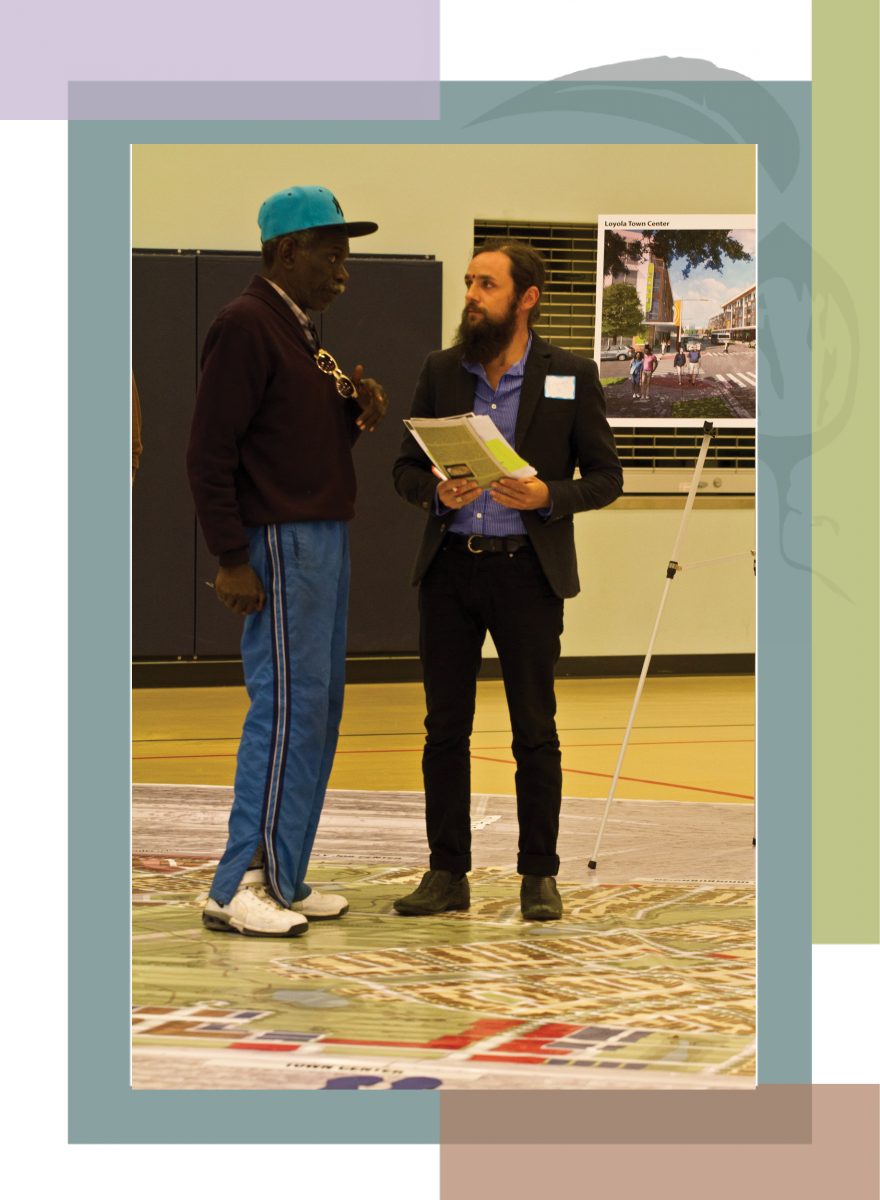Colony Park Sustainable Community Initiative Facts
 This project is funded through a U.S. Department of Housing and Urban Development (HUD) Sustainable Communities Challenge Grant. To learn more about the program visit the Partnership for Sustainable Communities, an interagency partnership between the U.S. Departments of Housing and Urban Development, Transportation, and the Environmental Protection Agency.
This project is funded through a U.S. Department of Housing and Urban Development (HUD) Sustainable Communities Challenge Grant. To learn more about the program visit the Partnership for Sustainable Communities, an interagency partnership between the U.S. Departments of Housing and Urban Development, Transportation, and the Environmental Protection Agency.
Award Amount: $3,000,000
Grant Term: 3-year planning grant
Summary: The Colony Park Sustainable Community Initiative (CPSCI) is a 3-year Community Planning Process that will culminate in a Master Plan for 208-acres of publicly-owned land in Northeast Austin, in addition to 93 acres of parkland, on Loyola Lane between Johnny Morris Road and Decker Lane.
The development will incorporate best practice strategies for energy-efficient building design, water conservation and zero-waste technology and standards to create a model sustainable and livable mixed-use, mixed-income community. The project will include completion of a Master Plan, resulting in rezoning; engineering for subdivision and site planning for review and approval by the City of Austin; infrastructure construction plans and architectural design guidelines for new sustainable residential and commercial development. The proposed project will support and furthers the U.S. Department of Housing and Urban Development’s six “livability principles”: provide more transportation choices; promote equitable, affordable housing; enhance economic competitiveness; support existing communities; coordinate policies and leverage investment; and value communities and neighborhoods.
Project Goals
- Further land-use planning and development of 208 acres of publicly-owned land at Colony Park inspired by the U.S. Department of Housing and Urban Development (HUD) Livability Principles
- Foster cross-department/agency coordination and create successful models of comprehensive systems change to support sustainable and equitable development
- Support capacity building and community transformation goals of Colony Park area residents and stakeholders
Project Activities
 Activity 1: Team Formation and Initial Analysis - Establish clear channels of communication with area residents and stakeholders; build capacity and breadth of project team; assess opportunities and constraints of proposed development
Activity 1: Team Formation and Initial Analysis - Establish clear channels of communication with area residents and stakeholders; build capacity and breadth of project team; assess opportunities and constraints of proposed development- Activity 2: Kickoff and Visioning Phase - Determine a shared vision of the proposed development based on local interpretation of the HUD Livability Principles
- Activity 3: Plan Development and Approval - Incorporate the vision into a vibrant Master plan for the Colony Park initiative; achieve regulatory approvals to proceed with project
- Activity 4: Evaluation and Knowledge Sharing - Assess project implementation and success; achieve best practices in sustainability; foster cross-department/agency coordination, create successful models of comprehensive systems change to support sustainable and equitable development
Partnerships
- Austin Housing Finance Corporation (AHFC)
- City of Austin Sustainability Office
- Austin Energy/Austin Energy Green Building
- Austin Resource Recovery (formerly Solid Waste Services)
- City of Austin Water Utility
- City of Austin Watershed Protection Department
- City of Austin Transportation Department
- City of Austin Economic Growth and Redevelopment Services Office (EGRSO)
- City of Austin Planning & Development Review Department
- Austin/Travis County Health and Human Services Department (HHSD)
- Pecan Street, Inc.
- Capital Area Texas Sustainability Consortium (CATS)
- Capital Metro
- Colony Park Neighborhood Association
- Austin Independent School District (AISD)
- Austin Community Development Commission
CPSCI Project Team
 Design Team: The Austin City Council selected the partnership of Chicago-based Farr Associates, a nationally-recognized leader in sustainable development, and Austin-based Urban Design Group (UDG), a firm with experience in several successful Central Texas projects, to create the master plan and regulating plan for the project site. Together, Farr Associates and UDG make up the CPSCI Joint Venture Design Team. UDG is the project manager.
Design Team: The Austin City Council selected the partnership of Chicago-based Farr Associates, a nationally-recognized leader in sustainable development, and Austin-based Urban Design Group (UDG), a firm with experience in several successful Central Texas projects, to create the master plan and regulating plan for the project site. Together, Farr Associates and UDG make up the CPSCI Joint Venture Design Team. UDG is the project manager.
Public Engagement Team: The CPSCI Public Engagement Team (PET) includes members of the Colony Park Neighborhood Association (CPNA), staff from the City of Austin, and dedicated faculty, staff, and students from The University of Texas at Austin (UT) and Austin Community College (ACC). The goal of the PET is to maximize public participation in this community planning process and other capacity-building activities geared towards residents within the outreach area.


